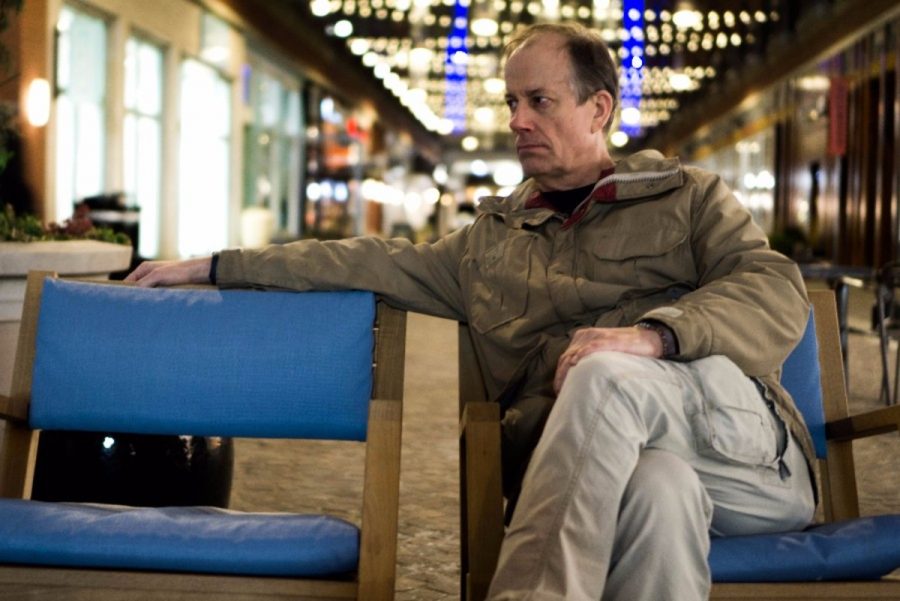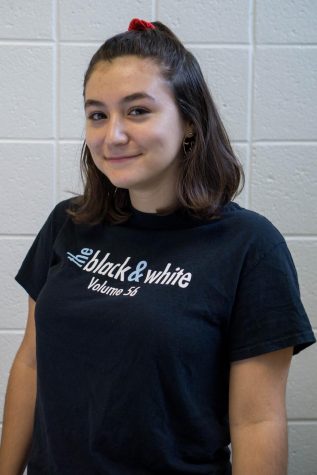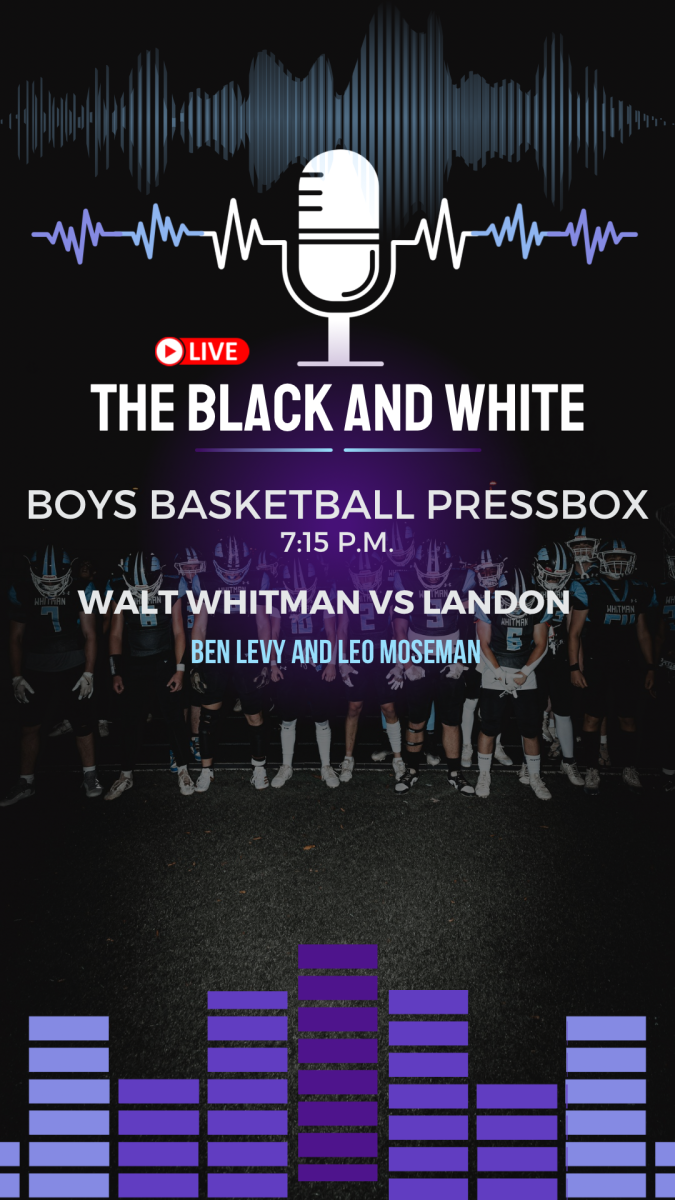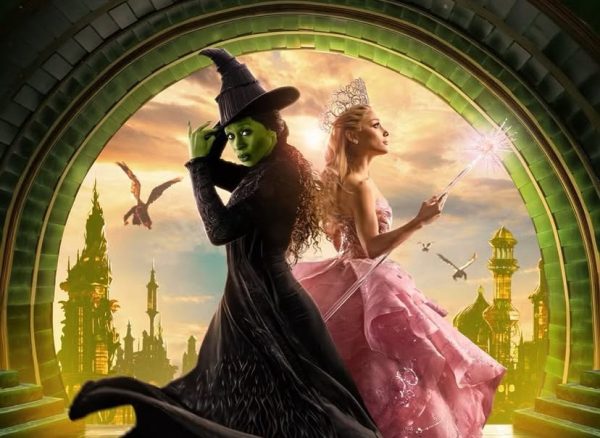Former high-ranking NSA official reflects on life after whistleblowing
Drake sits in Bethesda Row after a shift at the nearby Apple Store. He began working for the company in 2009 after leaving the NSA. Photo by Lukas Gates.
January 31, 2018
Is Thomas Drake is a spy, a traitor or a hero? It depends on who you ask. The Obama administration and the national security establishment labeled him a leaker, guilty of treason, while government accountability advocates still herald him as a patriot, guilty only of acting on moral conviction.
The former NSA senior executive, Air Force veteran and security technology expert has been both vilified and deified for his exposure of the NSA’s warrantless wiretapping of domestic surveillance program, massive wastes of funding and intelligence failure regarding 9/11.
Now, though, Drake works at the Apple Store in downtown Bethesda, a far cry from his national security background.
WORKING FOR THE NSA
Drake’s first day at the NSA was September 11, 2001.
Hired to identify new technology for the War on Terror, Drake fixed upon ThinThread, a program that was shelved only three weeks prior to 9/11. It was relatively inexpensive, effective at filtering out non-essential information and contained powerful rapid-encryption privacy protections.
Instead, the NSA chose to use Trailblazer, a similar but far more expensive and less effective program that lacked adequate privacy protections, the Baltimore Sun reported. By 2006, it had gone hundred of millions of dollars over budget and was shut down.
While working at the NSA, Drake came across projects and strategies that made him question the decisions made by individuals in the highest echelons of the agency. Drake found that different branches of the national security structure had withheld crucial information from one another regarding Sept. 11. He also discovered that the NSA had used the core code of ThinThread to start a warrantless wiretapping program to surveil American citizens’ communications.
“They were in abject violation of the Constitution. They decided, because of the abject failure of 9/11, that they just wanted to collect the data and it doesn’t matter where we get it from,” Drake said. “It was about as secret as you can get on a program like this, especially because it was signed into existence by the president himself.”
The biggest red flag, however, came when Drake ran information from NSA databases through ThinThread to test the system’s capabilities. Drake and his colleagues discovered that the agency had obtained information containing indications of the events of Sept. 11 months before the attacks but lacked the technology to gather and understand its implications.
“I live with the dirty knowledge that we could have stopped 9/11,” Drake said. “I live with that knowledge that it never should have happened, that we had utterly failed the public, that we had failed under the Constitution to provide for the common defense. This was the equivalent of an electronic Pearl Harbor, except we had blinded our own selves.”
BLOWING THE WHISTLE
Over the next few years, Drake and four other colleagues followed every proper channel for whistleblowers to expose the NSA’s wrongdoing. Evidence of warrantless domestic surveillance in hand, they went to the Inspectors General of the NSA and the Department of Defense, the offices tasked with oversight and accountability; Drake even testified before Congress.
No one listened. The culture of silence fostered by the security agencies after 9/11 prohibited whistleblowing efforts, especially against programs sanctioned by the president, he said.
Frustrated by the government’s failure to hold the NSA accountable, Drake anonymously contacted Siobhan Gorman, a reporter for the Baltimore Sun.
“I was playing with fire, and I knew it. I knew it because I knew how far the government had already gone,” he said. “They were going to go to the ends of the Earth to find anybody associated with the program and anyone who might have gone to the press.”
Just attempting to publicize this information was fraught: Drake knew the NSA was monitoring Gorman’s email, along with the emails of many other reporters. He needed to bet she could guess the password to the email and decrypt his message on the first try. Gorman did, and the Baltimore Sun published the first article using declassified information he provided in 2006.
Drake maintains this was his only leak. But a New York Times article about the warrantless wiretapping program in December 2005 cited an unnamed senior NSA official, whom the government alleged was Drake. Drake denies this, saying the allegations were a way for the government to make an example out of him.
“I can’t look away, I can’t stand by,” he said. “I had a responsibility to the American public to protect and defend the Constitution, so I did that. And for that, I was criminalized.”
The government took measures against him. In 2006, Drake was reassigned to the National Defense University and had his security clearance revoked in 2007. In November of that year, the FBI raided his home. The agency confiscated books, computer equipment and even a personal calendar and threatened him with prison time if he didn’t cooperate with the FBI investigation into the leaks. He did cooperate, but eventually he resigned from the the NSA a year later and began working part-time for Apple in August 2009.
In 2011, the Obama administration indicted him under the Espionage Act in the Act’s first use since the 1971 trial of Daniel Ellsberg, the man who leaked the Pentagon Papers. This, Drake says, was the government’s way of punishing him for leaking information.
“When I was so publicly indicted, [the possible sentence] was 35 years in prison, for having done what? Stood up to defend and support the Constitution against my own government,” he said. “And yet who was the one who had betrayed the ideals, the practices and the fundamental basis for our own form of governance?”
The charges were dropped on the eve of his trial. That night, Ellsberg flew from California to sit on the courthouse steps with him and discuss why whistleblowing matters.
Drake pled guilty to improper use of a government computer and was ultimately sentenced to community service.
A LASTING IMPACT
Initially, the loss of Drake’s security clearance, his indictment and the FBI’s and NSA’s ongoing investigations made it hard to find a job.
“I couldn’t find other work. That’s what makes Apple so unique. Even with what happened to me, they said ‘unless you’re found guilty of a felony, you can continue to work here.’ It wasn’t a problem,” he said. “It’s really a phenomenal company to work for.”
The effects of the case spread beyond just Drake’s job, he said. His personal circles, made up of other national security experts, dissolved as his case made him persona non grata. He lost his pension when he resigned, and the vast amounts of money he spent on legal defense sapped his savings. But the death threats and allegations of treason he faced as well as the disintegration of his personal and professional lives weighed most heavily on him, he said. Despite this, he didn’t regret what he had done.
“I have had many long nights and long days as the years have gone by,” Drake said. “But I know how extraordinarily precious freedom and liberty is. I felt utterly betrayed that the American people and the world were utterly betrayed by my own government.”
The repercussions of the case ultimately rippled beyond the life of one man. It was one of the first in the Obama administration’s crackdown on leaks, in which the government drastically increased punishments for and litigation against whistleblowers. It also perversely encouraged would-be whistleblowers to circumvent the government structure and publicize information through other means, like Wikileaks.
“We had a guy who did absolutely everything right,” Edward Snowden told AJ+ in 2015. “He placed his faith in the system and they actively retaliated against him to send a message to everybody in the workforce that things are different now… It’s fair to say that if there hadn’t been a Thomas Drake, there couldn’t have been an Edward Snowden.”
Even today, Drake is vigilant about the threats to privacy that surveillance and national security programs pose.
“What country do you want to keep?” Drake said. “I’m speaking to you from the future. I’ve already seen the future I don’t want you to live. You can’t take any of this for granted. You can’t take freedom, you can’t take liberty, you cannot take any of your rights for granted. All I did was stand up and defend them.”










Roger Lathbury • Jan 31, 2018 at 8:44 pm
Written with a maturity and sophistication that would do any newspaper credit. Bravo!
Kathy A Gambrell • Feb 1, 2018 at 10:49 am
Agreed! A superior piece of writing.